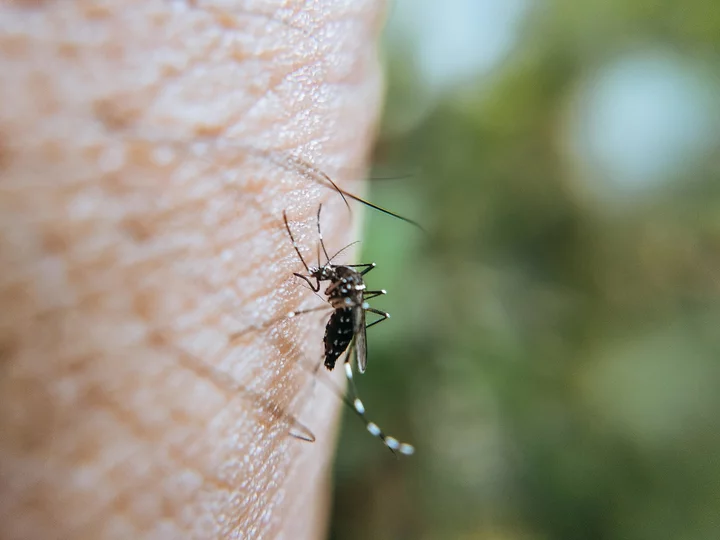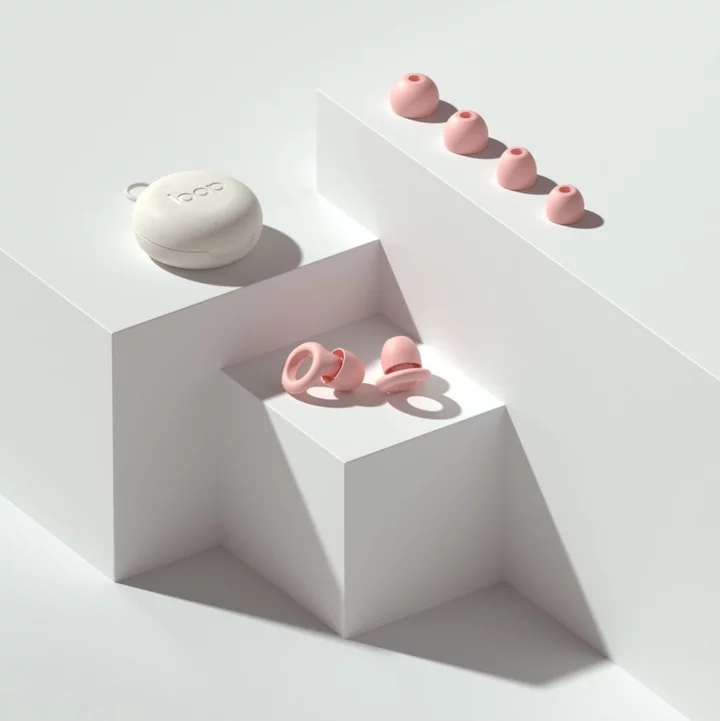
Secret ‘James Bond’ Tunnels May Become a Tourist Attraction
A warren of tunnels beneath central London, once used by the spies who inspired the creation of James
2023-09-25 12:59

A lifetime subscription to this music production hub is on sale for 83% off
TL;DR: A lifetime subscription to the Noiselab Music Production Hub is on sale for £49.25,
2023-10-27 12:48

Don’t Let Peach Season Pass Without Making This Rustic Cobbler
August is peach season, and this cobbler is one of the simplest desserts to make with the stone fruit.
2023-08-05 01:47

Travis Barker speaks out about wife Kourtney Kardashian’s ‘life-threatening’ fetal surgery amid pregnancy
Travis Barker has spoken out about wife Kourtney Kardashian Barker’s “urgent” foetal surgery amid her pregnancy. The musician, 47, took to X – formerly known as Twitter – on Wednesday (6 September) to open up about his wife’s surgery. His tweet came after the Poosh founder revealed that she was rushed into emergency foetal surgery, in order to save the life of her and her husband’s unborn baby. In his post, he expressed his gratitude for how the procedure went and noted that he’ll be back on stage this week, after postponing a handful of Blink-182 European tour dates due to “an urgent family matter”. “God is great. I flew home for a life-threatening emergency surgery for our baby that I’m so grateful went well,” he wrote. “I want to say thank you for all the support. Tour resumes Friday.” Many fans replied to Barker’s tweet with messages of support during Kardashian’s recovery from the surgery. “Happy to hear man, love from all around the world,” one wrote, while another added: “Great news!” Barker’s tweet comes days after Blink-182 revealed that Barker was returning home to California in the middle of his band’s tour to be with his family. “Due to an urgent family matter, Travis has had to return home to the States,” the band wrote in a tweet, shared on 1 September. “The Glasgow, Belfast, and Dublin shows are being postponed. More information in regards to his return to Europe and rescheduled dates will be provided as soon as available.” The three-piece rock group were initially scheduled to perform two shows at the OVO Hydro in Glasgow on 1 September and 2 September, followed by concerts in Belfast on 4 September and Dublin on 5 September. On Saturday 2 September, Kardashian and her husband were seen leaving the hospital, in photos obtained by the Daily Mail. It was later confirmed by People on 4 September that the reality star had been briefly hospitalised and on the road to recovery. Two days later, Kardashian shared an update about her health on Instagram, where she posted a black and white photo of herself in a hospital bed while holding Barker’s hand. She began her caption by explaining that she’ll “be forever grateful to [her] incredible doctors for saving [her] baby’s life” and praised her husband’s support while she was in the hospital. “I am eternally grateful to my husband who rushed to my side from tour to be with me in the hospital and take care of me afterwards, my rock,” she wrote. “And to my mom, thank you for holding my hand through this.” In her Instagram post, Kardashian revealed that she underwent foetal surgery, which “is a procedure performed on an unborn baby in the uterus to help improve the long-term outcome of children with specific birth defects,” according to the Mayo Clinic. “As someone who has had three really easy pregnancies in the past, I wasn’t prepared for the fear of rushing into urgent foetal surgery,” Kardashian continued. “I don’t think anyone who hasn’t been through a similar situation can begin to understand that feeling of fear. I have a whole new understanding and respect for the mamas who have had to fight for their babies while pregnant.” She concluded: “Praise be to God. Walking out of the hospital with my baby boy in my tummy and safe was the truest blessing.” In June, Kardashian held up a sign at a Blink-182 concert to announce that she was pregnant. The news came six months after she publicly shared that she had stopped in-vitro fertilisation (IVF) treatment because it had taken “a toll” on her physical and mental health. Before Kardashian tied the knot with Barker in May 2022, the reality star previously welcomed three children – Mason, 13, Penelope, 12, and Reign, 10 – with ex Scott Disick. Meanwhile, Barker shares a 19-year-old son, Landon, and 14-year-old daughter, Alabama, with ex-wife Shanna Moakler. He also helped raise Moakler’s 24-year-old daughter, Atiana De La Hoya, from her previous relationship. Read More Kourtney Kardashian reveals she underwent urgent foetal surgery amid pregnancy Kourtney Kardashian was briefly hospitalised amid pregnancy, according to reports Blink-182 postpone UK and Ireland shows as Travis Barker rushes home for ‘urgent family matter’ Kourtney Kardashian reveals she underwent urgent fetal surgery Kourtney Kardashian was briefly hospitalised amid pregnancy, according to reports Kourtney Kardashian and Travis Barker leave hospital after ‘urgent family matter’
2023-09-07 06:28

Save 30% on this electric mosquito killer, now under $21
TL;DR: As of June 23, get the Electric Mosquito Killer for just $20.99 (reg. $29.99)
2023-06-23 17:48

Sam Neill shares blood cancer update as he reveals he’s ‘not remotely afraid’ of death
Sam Neill has been warned by doctors that his cancer treatment drug will stop working at some point, the actor said as he provided a health update months after revealing that he had been diagnosed with stage-three blood cancer. Earlier this year, the Jurassic Park star released his memoir Did I Ever Tell You This?, in which he revealed that he was being treated for angioimmunoblastic T-cell lymphoma. At the time, Neill shared that he had originally undergone chemotherapy, but that the cancer had soon stopped responding. He then went onto an experimental anti-cancer drug. In a new interview, Neill, 76, shared that he’d upped his dosage of the “grim and depressing” drug from once a month to every two weeks. However, he said, he has now been in remission for 12 months. Neill told ABC’s Australian Story that while he would be on the treatment indefinitely, doctors have told him that, at some point, it will stop working. “I’m prepared for that,” he said, adding that he is “not remotely afraid” of death. The Piano star said that he had first found lumps in his neck in early 2022, and soon learnt that he had cancer. “I started to look at my life and realise how immensely grateful I am for so much of it,” Neill said. “I started to think I better write some of this down because I’m not sure how long I have to live. I was running against the clock." First sharing his cancer diagnosis in March, the New Zealand actor – who is best known for playing palaeontologist Dr Alan Grant in the Jurassic Park franchise – said that dying would “annoy” him. “I’d really like another decade or two, you know?” he said. “We’ve built all these lovely terraces, we’ve got these olive trees and cypresses, and I want to be around to see it all mature. And I’ve got my lovely little grandchildren. I want to see them get big. But as for the dying? I couldn’t care less.” In an interview with The Independent earlier this year, however, Neill threw out the idea of retiring. “The idea of giving up my day job? Intolerable!” he said. “I love acting. It’s really good for me to keep walking onto new sets with young actors and all that stimulation. New words, new ideas, there’s nothing like it. I never want to give that up. The idea of retirement, of having to play golf, fills me with untold dread,” he said. Read More Sam Neill says Robin Williams was ‘the loneliest man on a lonely planet’ Amy Dowden delights Strictly Come Dancing fans in surprise appearance amid breast cancer treatment Richard E Grant says there are friends he’ll ‘never speak to again’ after death of wife Joan 4 black women on their experiences with breast cancer Ed Gamble says he used to weigh himself every day amid ‘obsessive’ weight loss Some people are born with a ‘talent for happiness’ – so what’s their secret?
2023-10-17 00:20

8 FaceTime gestures that trigger cool reactions on iOS 17
Did you know you can trigger cool effects like balloons, fireworks, hearts, and even a
2023-10-27 18:19

Canon imagePrograf TC-20M Review
The Canon imagePrograf TC-20M ($995) is the first under-$1,000 24-inch wide-format printer with a built-in
2023-06-25 10:46

11 ways to dip into Mediterranean inspired decor
Who doesn’t yearn for a more Mediterranean lifestyle every now and then? Whether or not a getaway is on the cards this summer however, bringing those dreamy holiday vibes home with a style update is easier than you might think. “Pulling together a Mediterranean-inspired coastal scheme is all about perfecting an airy, bright feeling through the use of colour and material that harks back to ocean shores,” says Rohan Blacker, founder of Pooky. “A palette of cool blues and pared-back neutrals introduces a breath of fresh air into the home, and when paired with natural materials, it works to create this slightly bohemian beachside feeling.” Consider rustic rattan lamps, paired with beautiful linen shades in muted seascape tones too, Blacker suggests. Organic raffia pendant designs also make easy additions, which will allow you to incorporate elements of a sunny coastal scheme through lighting changes alone. Helen Pett, Arteriors design ambassador, says: “When looking at furniture and lighting design, opt for statement pieces crafted with woven rattan or open-weave detailing, materials such as coconut shell or wooden beading. “Alternatively, a timeless colour choice for any coastal destination-inspired décor scheme introduces a pleasant combination of varying blues to mimic a summer sky, and the reflective surface of the sea,” she adds. Here’s how to get the look… 1. Picnicware – Set of 4 Dinner Plates, £20, Next Summer salads and slow days call for lightweight tableware, especially eye-catching designs like this, with a shiny finish to look and feel just so. 2. Seashells Jug, £17.95, Annabel James She sells seashells on the seashore… this beautiful bone china jug is worth shelling out for. 3. Pooky Aphrodite Pendants, from £200 (other items from a selection/part of room set), Pooky Featuring an artisan woven effect and brass accents, these hanging pendants are right on point. 4. Maze Rope Decorative Tray, £15, Dunelm Favourite finds such as this woven tray imbibe thoughts of freshly baked bread at breakfast, topped with exotic fruit platters. 5. Hugh 4 Seater Sofa – Calix Boucle, Ivory, £949; matching Large Square Footstool, £399, and Tarland Pattern Accent Chair – Kirkton Floral, Duck Egg, £799 (items part of room set), DFS A sumptuous sofa like this makes a wonderful centrepiece, especially styled with mosaic print cushions, ocean blues and rattan accessories, for an airy, breezy aesthetic. 6. Abigail Ahern Elian Recycled Glass Table Lamp, £149, Freemans Contemporary and cool, this clear recycled glass lamp with raffia shade will style up any space. 7. Collection Luxe Josie Frame in Wood and Cane, from £850, Next A beautiful base to build around, this carved wood and cane bedframe – especially teamed with a jute carpet, ocean hues and sheer white curtains – is tailor-made for hot, sultry nights. 8. George Blue Arc Tufted Throw, currently £12 (was £15), Direct.asda The finishing touch to dressing the bed à la Med? A tufted blue throw strewn across crisp linen sheets. 9. Indigo Seaweed Print Wall Art, from £18 each (unframed), Beach House Art Beachcombers will be drawn to these pretty artwork prints. 10. Mediterranean 594 Evora Vinyl, from £24.99 per square metre, Carpetright (available early July) Suitable for kitchen, dining and bathroom schemes, this modish motif makes a real feature. 11. George Wooden Lounge Chair – Cream Rope (top), £99, and Wooden Lounge Chair – Cream Cross Straps, £99, Direct.asda These accent chairs with woven rope design or cream straps will style up your suntrap and bring smiles all round. Read More Charity boss speaks out over ‘traumatic’ encounter with royal aide Ukraine war’s heaviest fight rages in east - follow live Whiten up your wardrobe with summer’s hottest trends Paternity leave should be paid for six weeks, campaigners tell Government My teenager gets all their news from TikTok – should I worry?
2023-06-15 15:55

Pope to visit Portugal in August for World Youth Day, Fatima Shrine
VATICAN CITY Pope Francis will travel to Portugal from Aug. 2-6 to attend the World Youth Day and
2023-05-22 18:57

Here's how to get alerts when your personal info shows up in Google Search
Have you ever Googled yourself and been surprised by the old social media images, usernames,
2023-10-30 03:17

The Meta Quest 2 just got $100 cheaper
SAVE $100: As of June 4, the retail price of the Meta Quest 2 has
2023-06-04 17:45
You Might Like...

Victoria’s Secret was never feminist – why are they bothering to try now?

Spanish clergy sexually abused over 200,000 children, probe estimates

Threads, Meta's Twitter rival, is tracking you in all sorts of ways

Super Organized People Love These 10 Products

Get Ready to Savor the Flavors of the Season with The Fresh Market's Fall-Inspired Offerings

Burger King launches ‘real cheeseburger’ stuffed with 20 slices of cheese

Disney, DeSantis legal fights ratchet up as company demands documents from Florida governor

Ukraine war: Curfews and closures mark a Friday night in Kyiv
